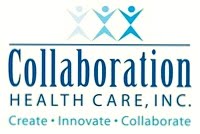I had the opportunity to provide testimony to the Minnesota Health Care Reform Task Force last week. This group was convened to develop new ideas and solutions to improve the health care in the state. Minnesota has always been looked upon as one of the “innovators” in the country when it comes to health care. It is the home of the Mayo Clinic, Medtronic, United Health Group, HealthPartners, Red Brick Health, and many other business model and product innovations that have been used as examples for other states in developing a more effective health care system for themselves.
The Task Force was certainly handed a huge task and must now integrate the federal requirements of the Affordable Care Act into its work. Despite the health care system that has developed in Minnesota over the years, it is still too expensive, too confusing, and many times inefficient.
The Task Force was provided updates from several of the work groups: Access (defining the benefit structures and pricing models to increase the number of individuals “covered” under a private or public health care financing program). Workforce (making certain the health care workforce is prepared to meet the future demand of health care). Health Insurance Exchange (developing the tools to implement a health insurance exchange market in Minnesota).
The four hour meeting was filled with handouts and presentations from the different groups. It was obvious to most that what was being discussed was going to cost a lot of money. It was also fairly obvious of the continuing confusion regarding the “rules” that must be followed to meet the requirements of the Affordable Care Act. Health care is complex- but these discussions made it even more confusing. There was very little (if any) discussion about how the average individual was going to understand any of it.
My testimony tried to at least bring the consumer/individual back into the discussion. I hope they were listening.
As I said, Minnesota is viewed as an innovator when it comes to health care. But Minnesota also struggles with the same challenges as other states to get consumers and individuals engaged and involved. With the complexity we are continuing to create- it’s no wonder.
Until groups like these begin to accept the economic realities we are facing, develop approaches based on a set of quantifiable objectives not utopian dreams, simplify the entire process, and include the perspectives of the “average citizen” in all of their discussions and decisions, we will probably just end up with a nice set of recommendations we can’t afford, that cost a lot of time and money to put together, and that we’ll just put on the shelf. We may move forward a little- but not nearly as far as we need to. But at least we're doing something.




